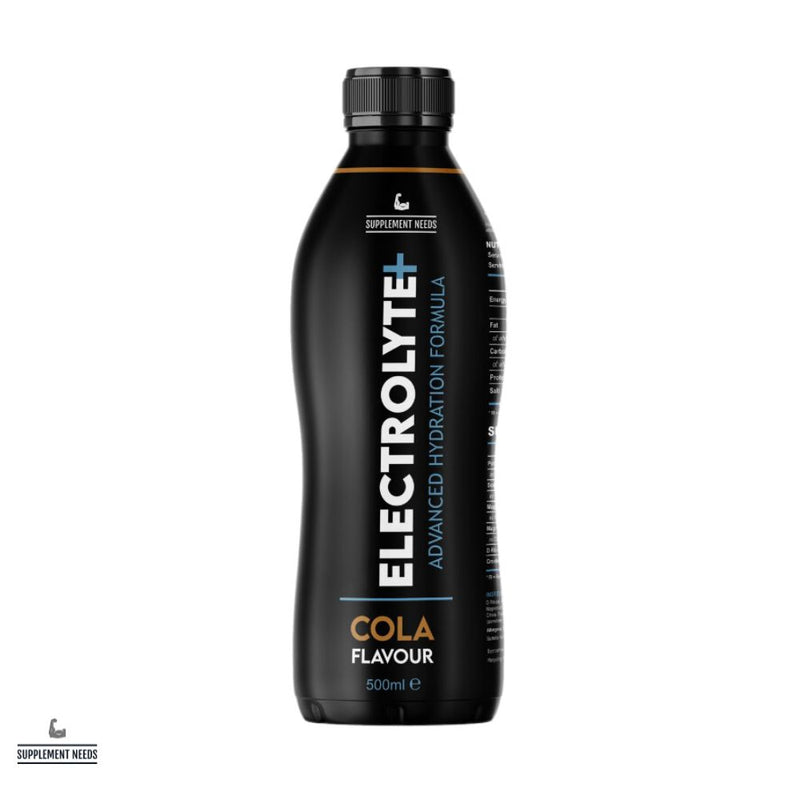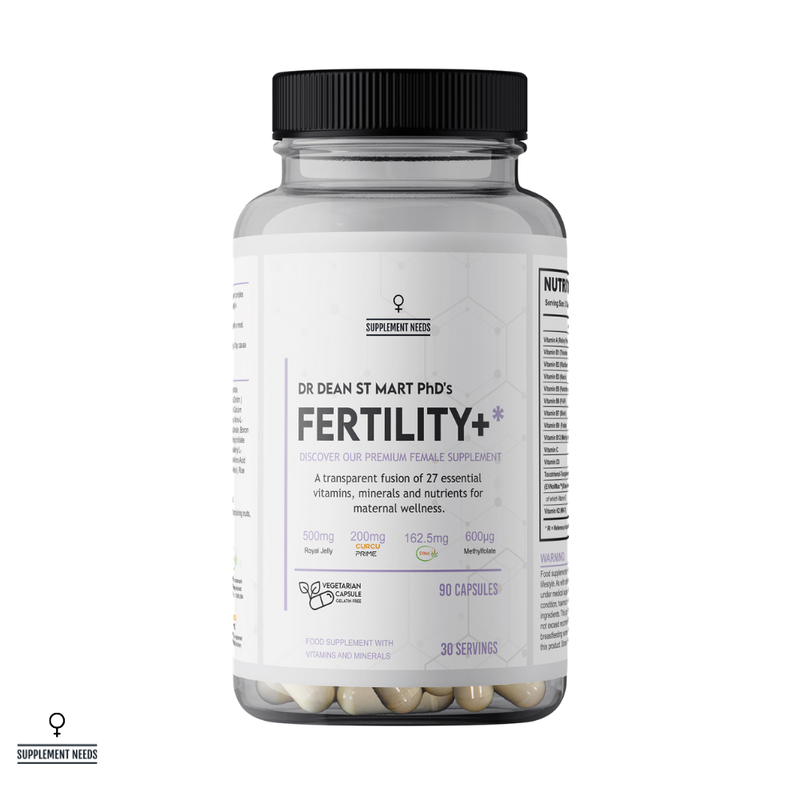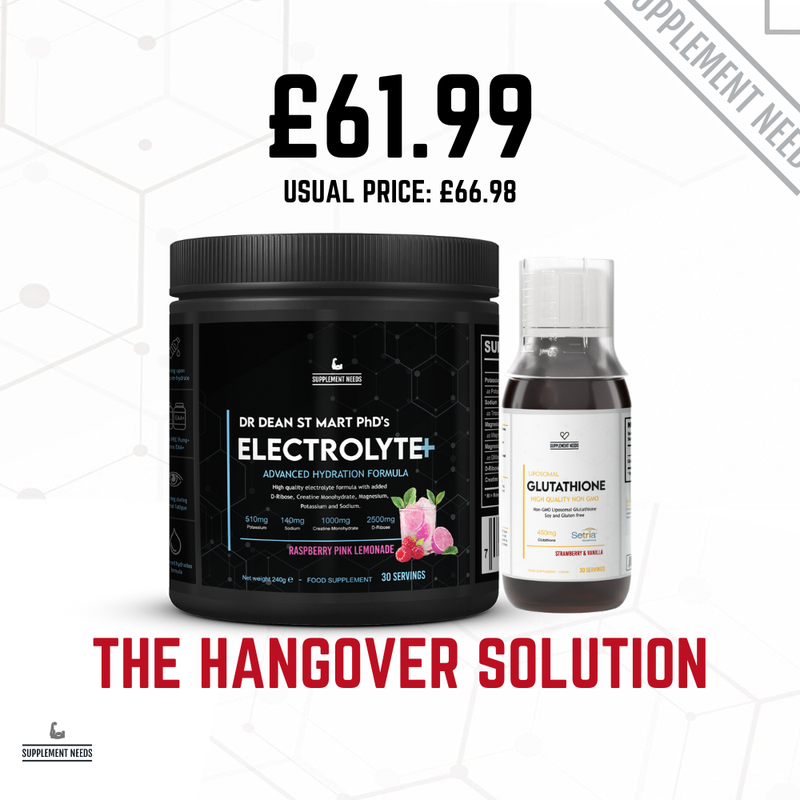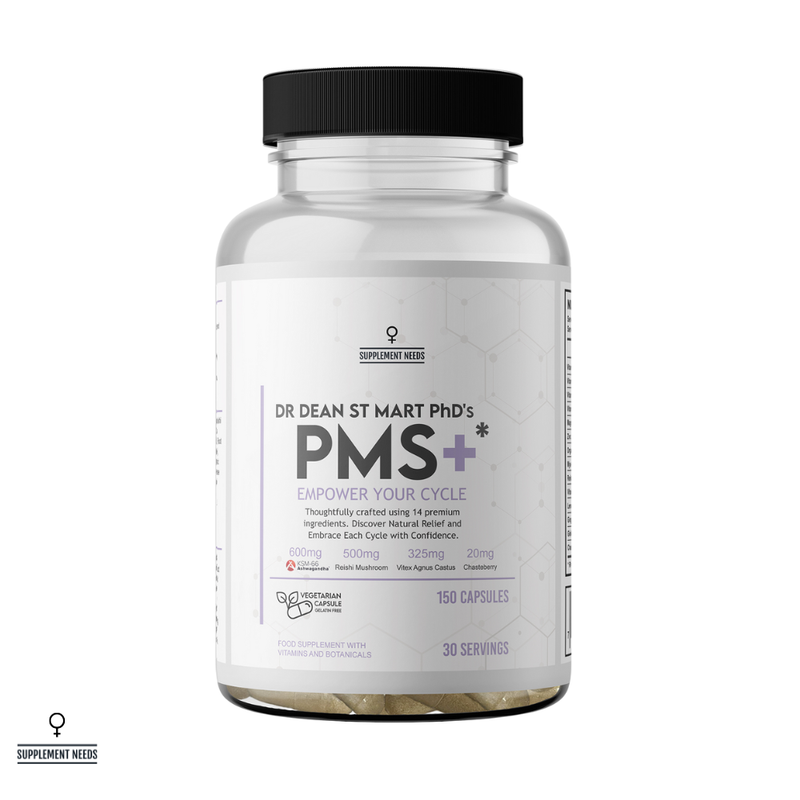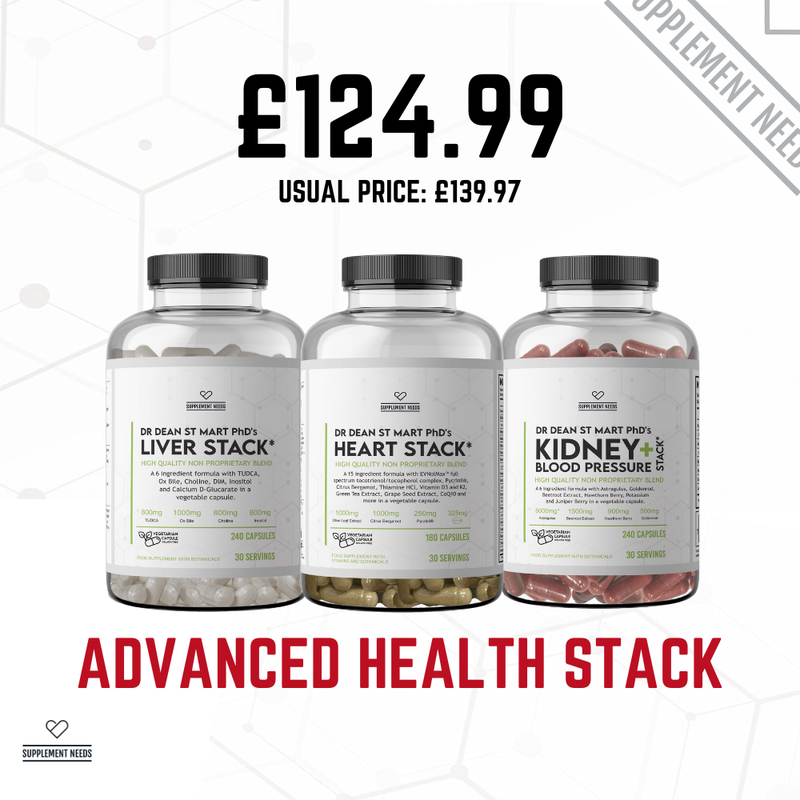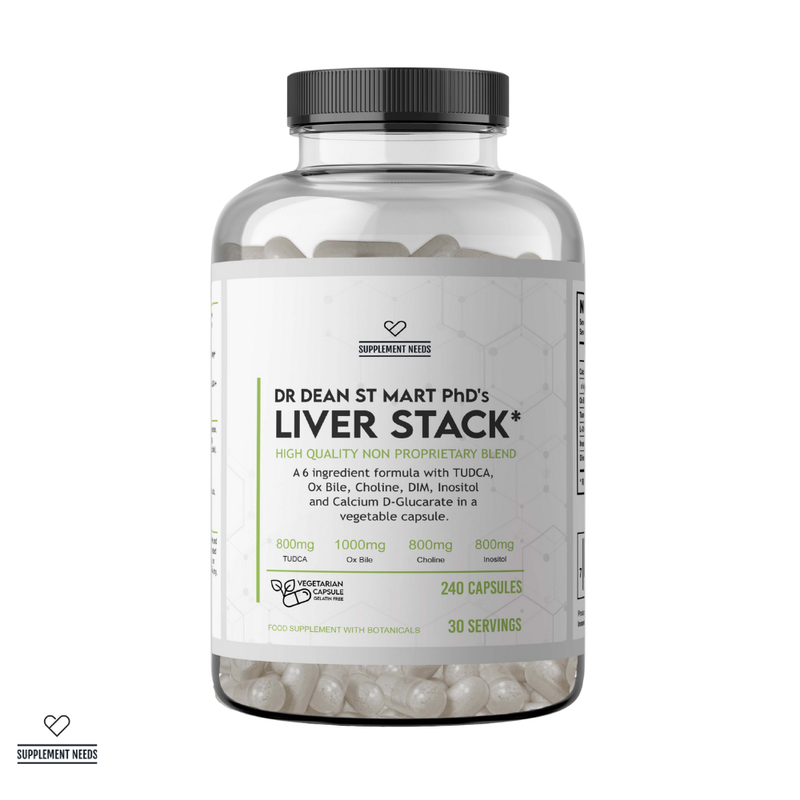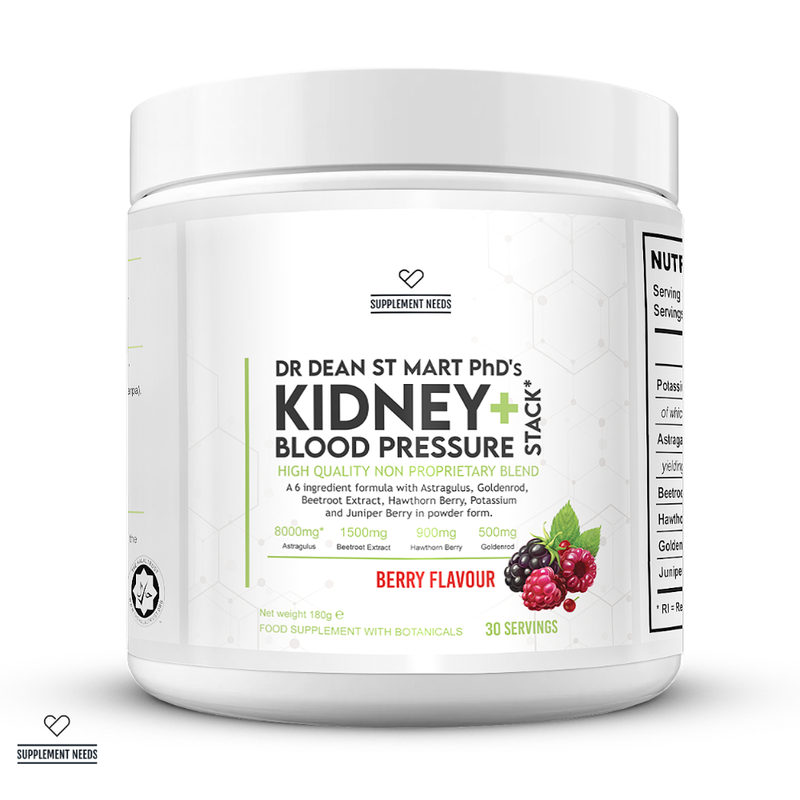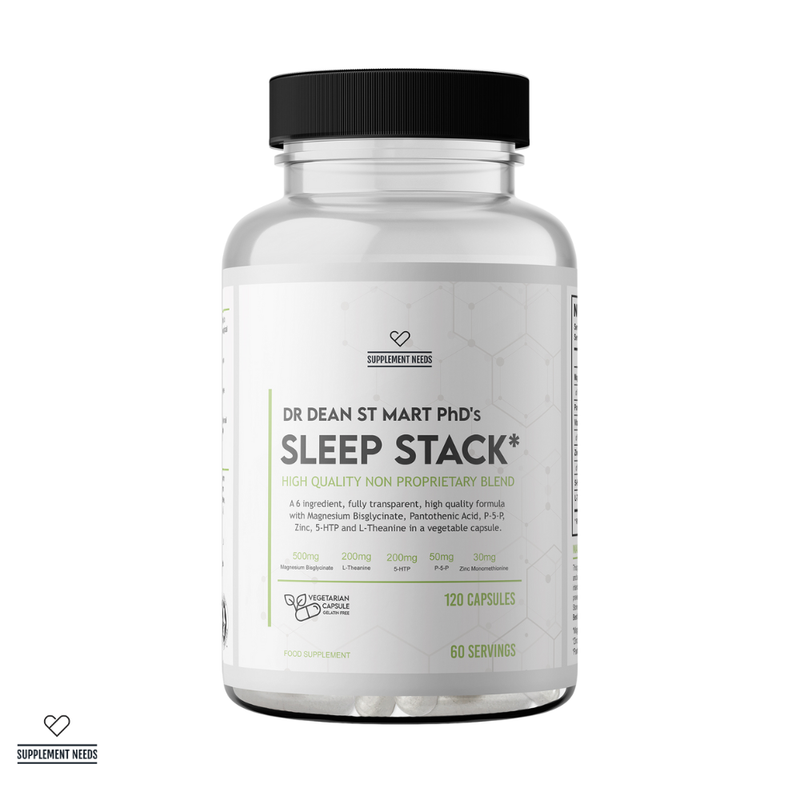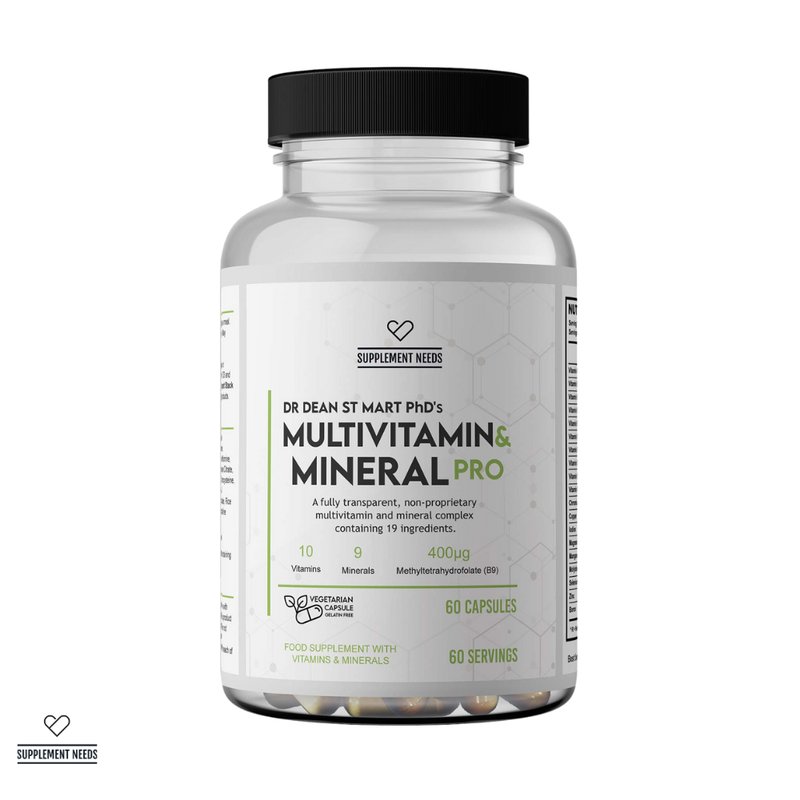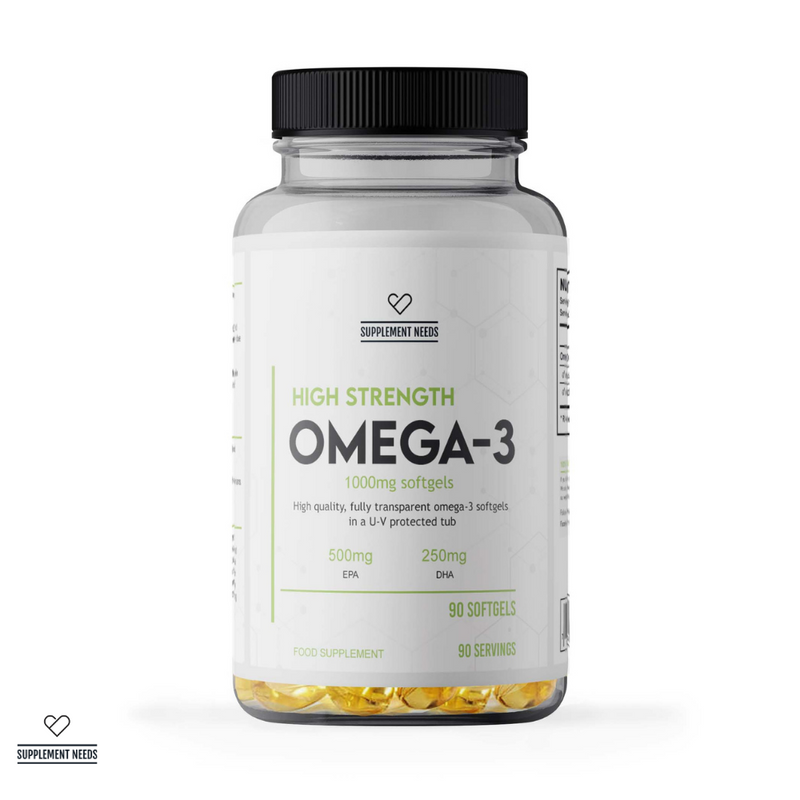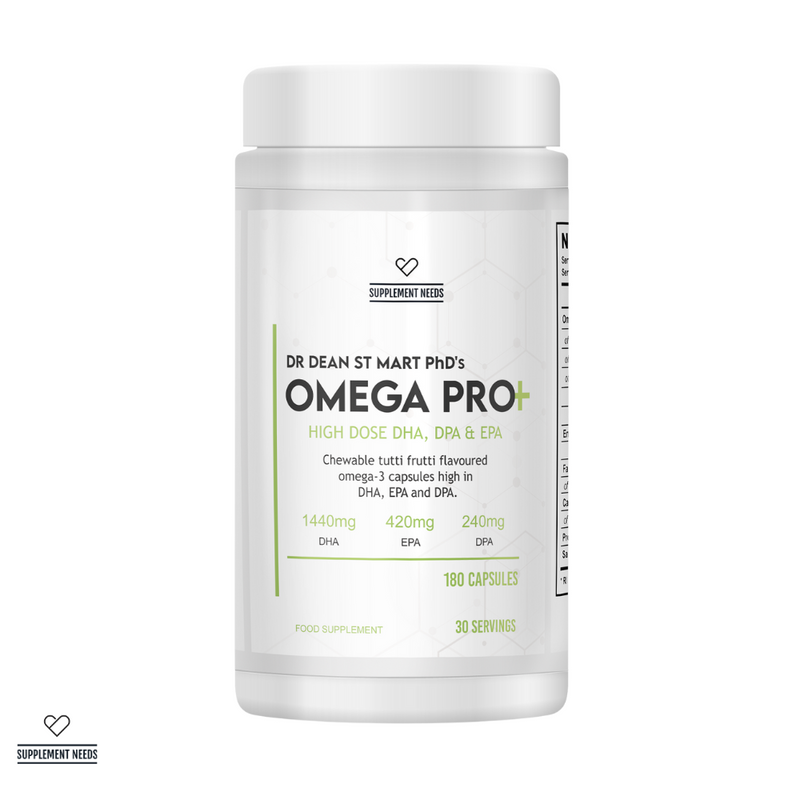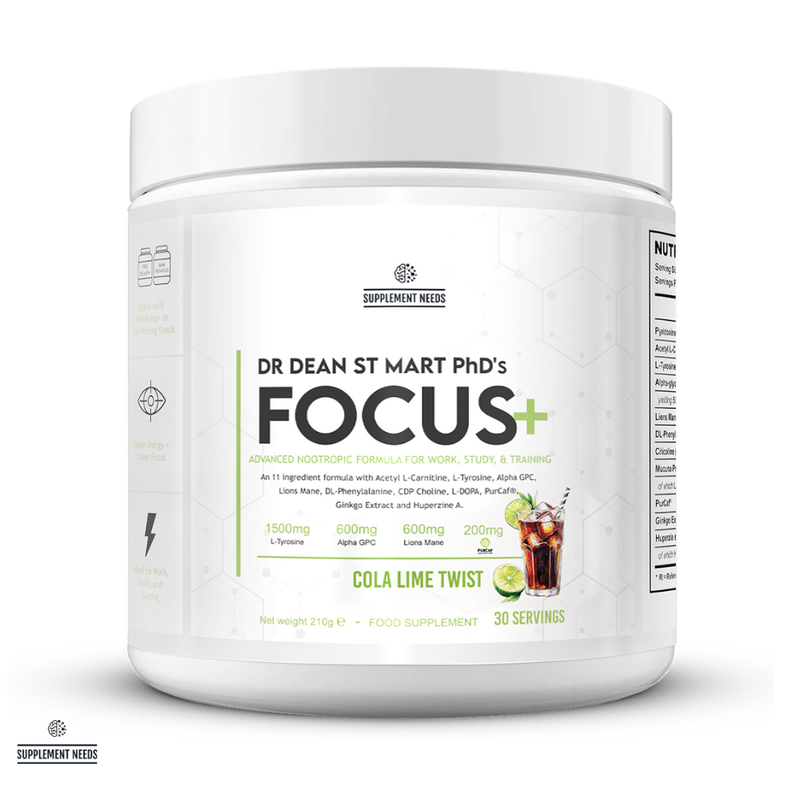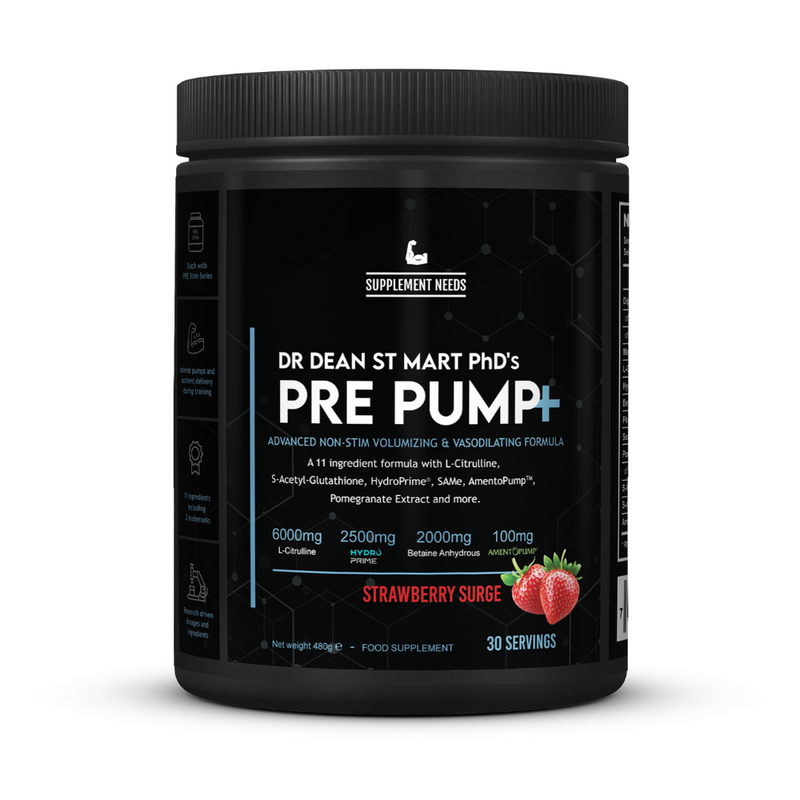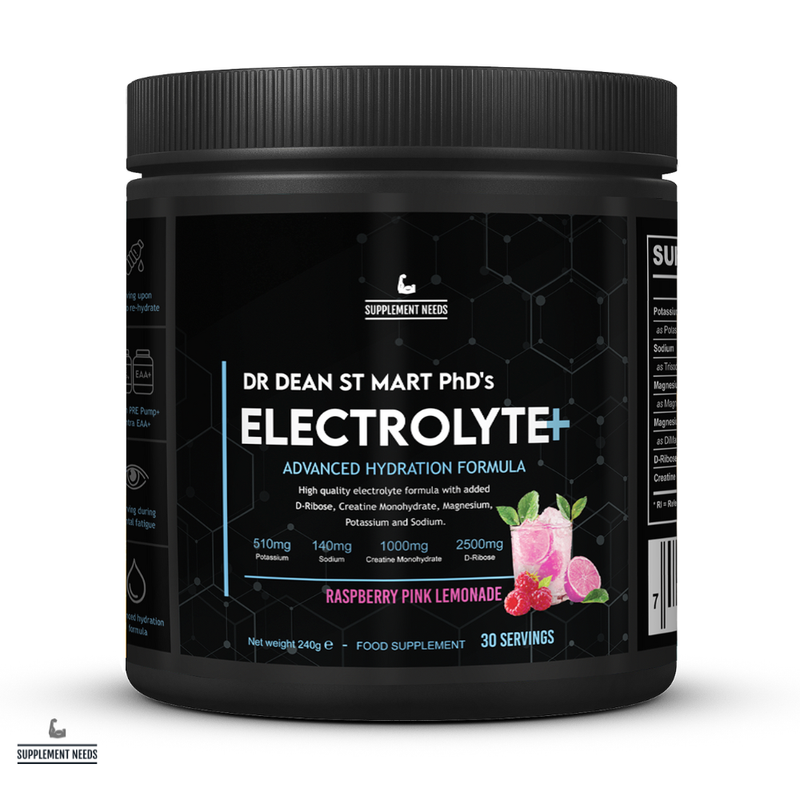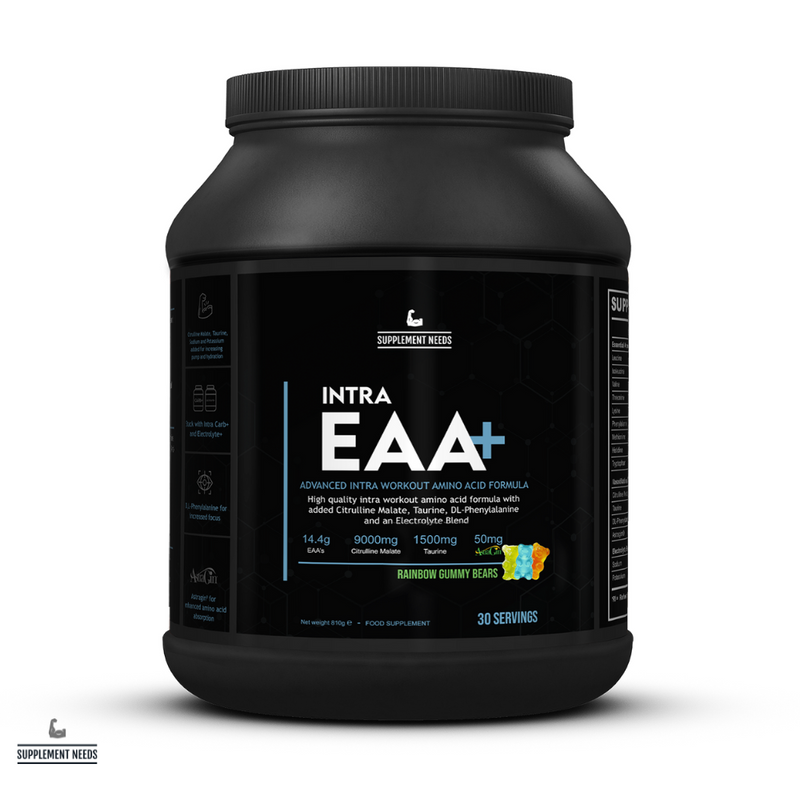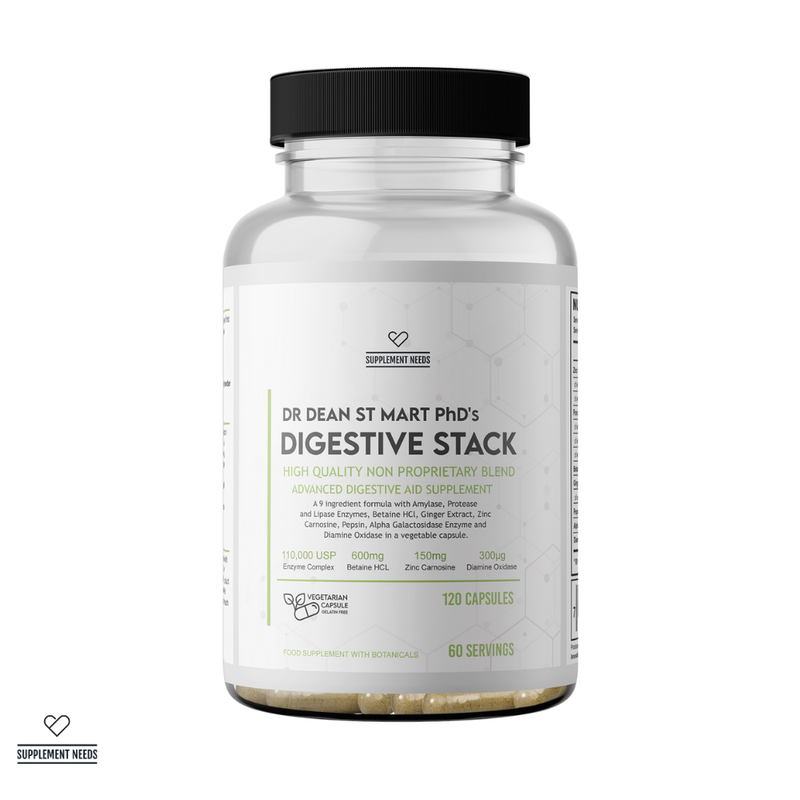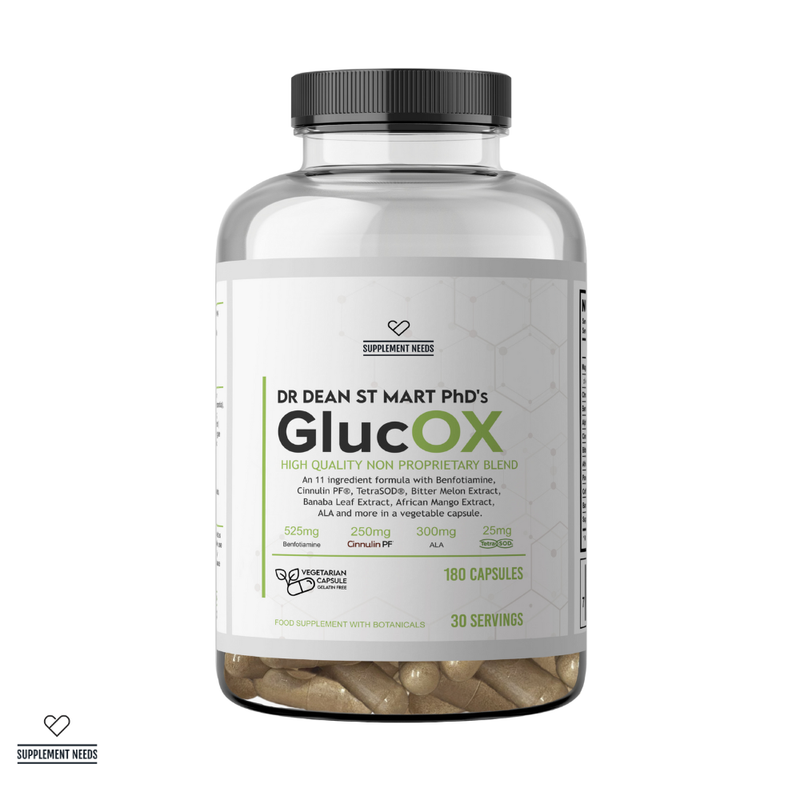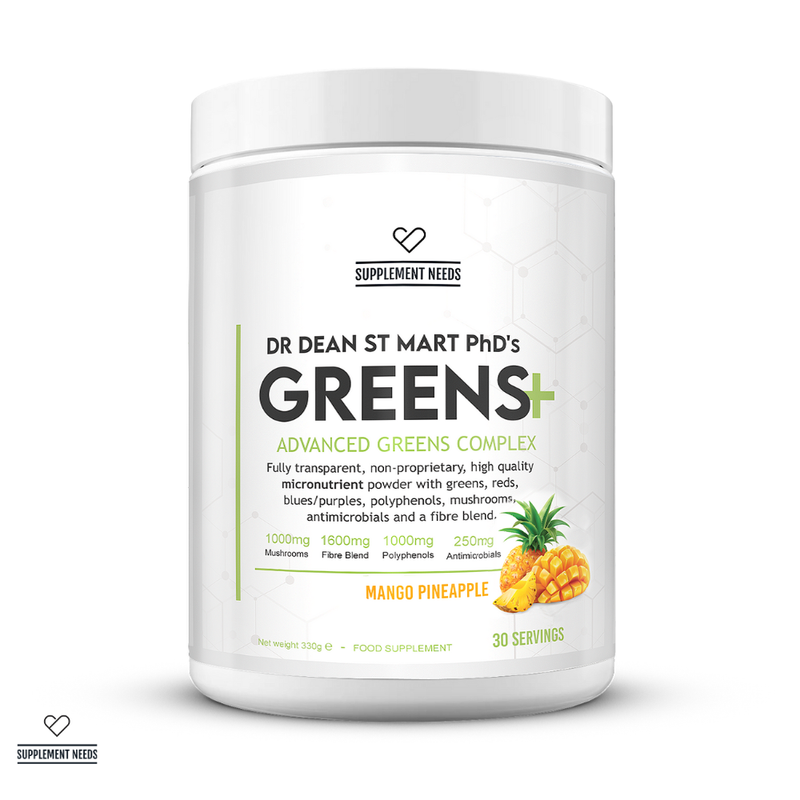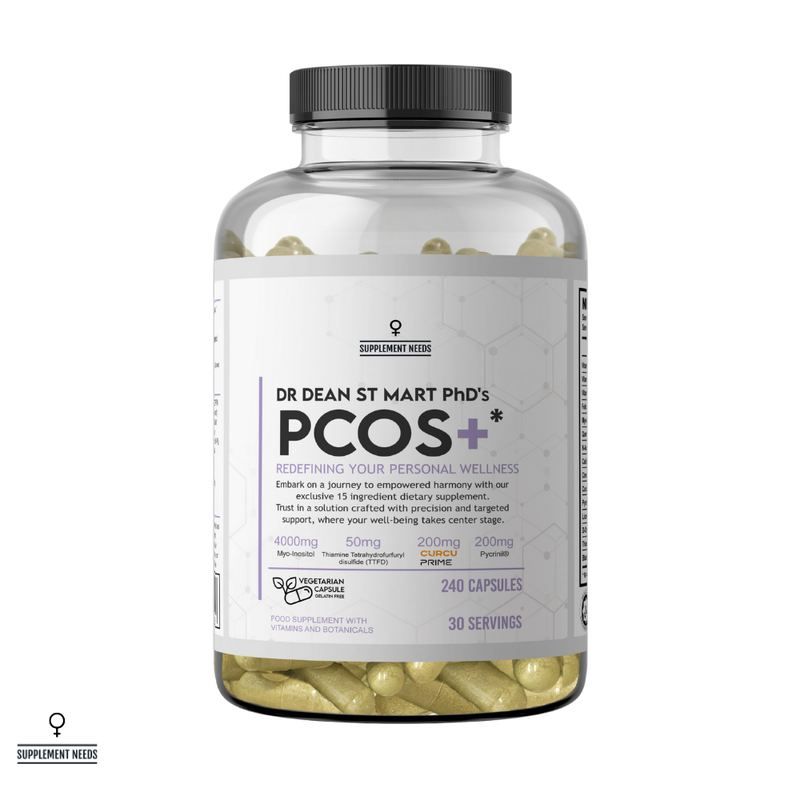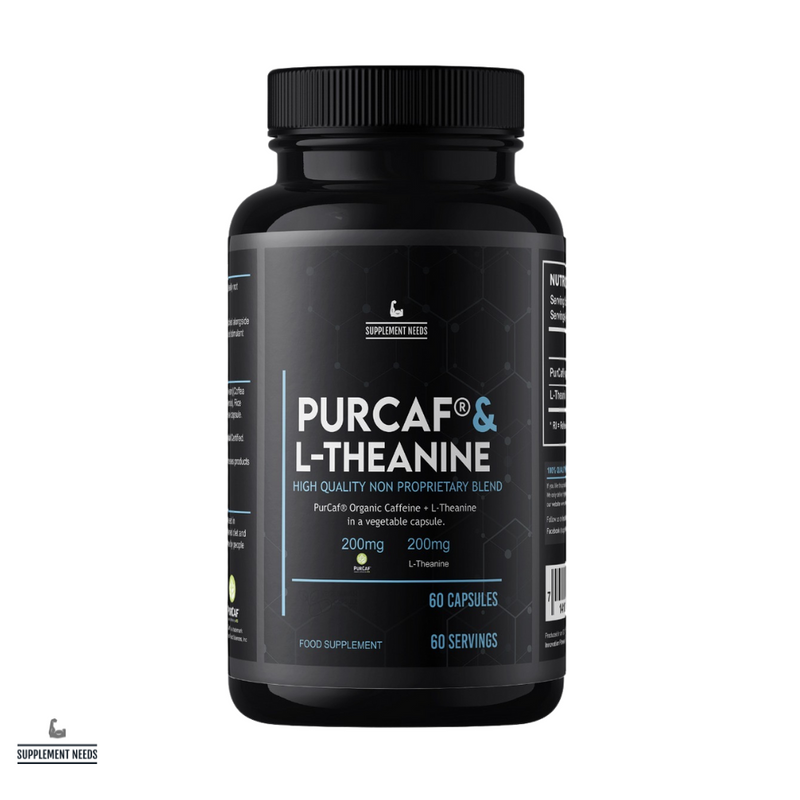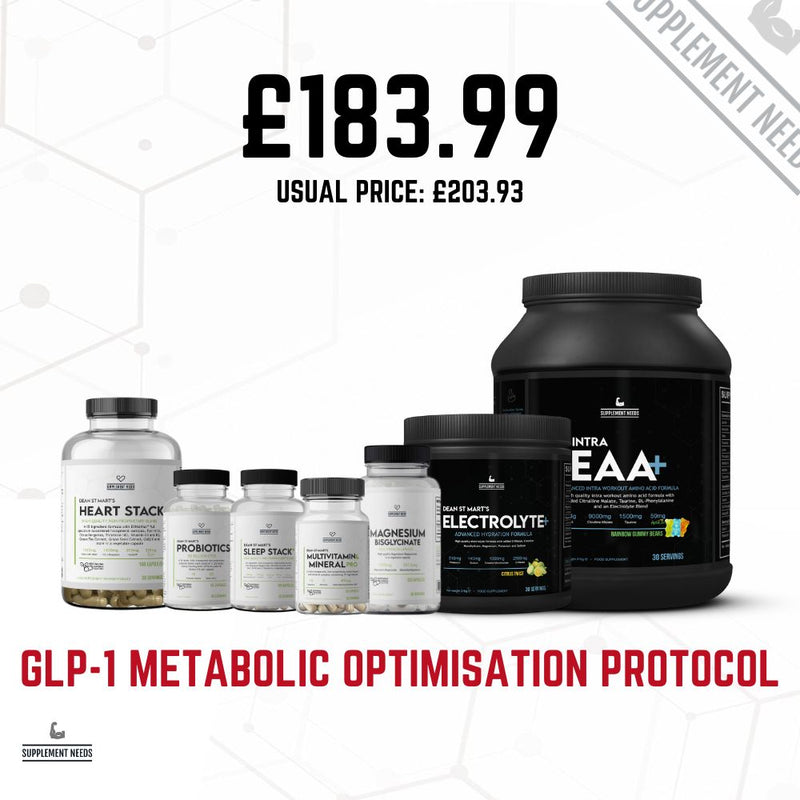At Supplement Needs, one of our core tenets is to always provide you with well-researched and fact-based information - which is why, in this article, we aim to debunk several of the most common supplement myths out there right now. Backed by evidence, our answers should provide you with some clarity when it comes to choosing the best supplements for your needs…
Fact or fiction: common supplement myths
If you are considering adding a nutritional or performance supplement to your daily routine, you should always have the facts. Below, we’ve chosen some of the biggest supplement myths and explained the truth behind the misinformation.
Myth 1: supplements are dangerous
There is a pervasive theory that supplements are dangerous, lack oversight, and may contain harmful or “bad” ingredients.
However, this is not true.
Firstly, in the UK, supplements are classified as ‘food’; and as such, they fall within the oversight and regulation by the government. More specifically, they need to comply with the Food Supplements (England) Regulations 2003 (and corresponding measures in Scotland, Wales, and Northern Ireland)1. This means that supplements are monitored to ensure that they are safe for consumption.
Additionally, there are many third-party accreditors who conduct a vast array of tests to make sure that supplements - especially those for sporting or athletic performance - are suitable for training.
Secondly, the idea that supplements themselves are harmful really has no grounding from a health perspective. The best supplements are explicitly designed to offer additional nutritional or performance-based benefits to meet the needs of the individual.
Or, to put it another way, supplements offer additional amounts of nutrients you already get from your diet - your body already needs and uses them, so supplements are helpful, not harmful.
Lastly, there is an idea that supplements contain harmful or “bad” ingredients. As we mentioned above, supplements typically consist of active ingredients your body already uses in some way.
However, this myth may have arisen from the use of excipients. Excipients are (mainly inactive) pharmaceutical additives2 that are incorporated into a formula for a variety of reasons, including (but not limited to)3:
-
Fillers (Diluents): some ingredients are used to standardise the size and shape of tablets, making them easier to manufacture consistently and ensure the right amount of active ingredient is in each tablet. Examples include lactose, sucrose, and plant cellulose.
-
Binders: these ingredients help hold tablets together, which is essential for safe manufacture, shipping, and ingestion. Examples include gelatin, cellulose, and other derivatives thereof.
-
Preservatives: as the name suggests, these ingredients are included to extend the shelf life of supplements. Examples include sorbic acid and associated salts, and methyl and ethyl parabens.
-
Coatings: tablets may have coatings to improve their identification, taste and stability, in addition to making them easier to swallow. Examples include sugar coatings, or ‘enteric coatings’ which are designed to allow the tablet to bypass the stomach and dissolve in the intestines.
-
Sweeteners: more typically found in liquid supplements, sweeteners improve the taste. Examples include sucrose, aspartame, and sorbitol.
-
Flowing agents: flowing agents such as magnesium stearate and silicon dioxide are added to supplements to prevent clumping and caking and help ensure consistent dosage.
Certain ‘influencers’ within the supplements space argue that these ingredients are ‘bad’ - but this is not true. Remember that these ingredients all still fall under the oversight of nutritional regulation. If they weren’t safe for consumption, they would not be allowed to be distributed.
Note: if you have dietary restrictions due to religion or allergy/intolerance, or follow specific diets, like veganism, check the ingredients to make sure they align with your diet.
We would also like to draw a distinction between filler ingredients meaning inactive ingredients like those we mentioned above; and “filler ingredients”, which are added into supplements without a clear purpose or additional benefit. Everything in a supplement should have a clearly defined role, which is why here at Supplement Needs we have a total ingredient transparency - so you know exactly what you’re getting when you choose us.

Myth 2: supplements can replace a healthy diet
Since supplements contain valuable nutrients that the body needs to function, then that means they’re good enough to replace a healthy diet, right?
WRONG. This is one of the most important myths we could choose to debunk, as it is dangerous to think of supplements in terms of dietary replacements. They categorically cannot take the place of a healthy, well-balanced diet4. Instead, these are meant to be supplementary to your diet to fill in any gaps, which can happen for many reasons. For example:
-
To support athletic performance: there are a vast array of supplements that are designed to build upon a strong nutritional framework and support athletes and fitness enthusiasts by offering convenient additional sources of vital nutrition such as protein, vitamins, and carbohydrates. Depending on your goals, the right supplement can support post-exercise recovery, improve lean muscle mass, or replenish energy loss5.
-
If you have a deficiency or medical requirement: supplements are ideal to fill any gaps that may occur due to a nutritional deficiency. Deficiencies can happen for a variety of reasons, for example:
-
People with heavy menstruation are more susceptible to anaemia, and evidence suggests that iron supplementation may improve iron stores and reduce the risk of developing anaemia6.
-
From October to March, the NHS recommends that everyone in the UK should consider taking an additional Vitamin D supplement as there is often insufficient sunlight for the body to make enough endogenously7.
-
People with dietary restrictions: people following a vegetarian or vegan diet, or those with lactose intolerance or allergies, may need to take some additional supplements to cover those typically found in the unavailable foods. For example:
-
Lactose intolerance: milk, and milk products, are one of the most common sources of calcium in a regular diet. In these cases, you may benefit from a lactase enzyme supplement (which replaces the lactase your body doesn’t make), in addition to calcium and Vitamin D.
-
Vegan: plant-based and vegan diets can be low in Vitamin B12, Omega-3, Calcium and others – which can result in chronic conditions like anaemia, osteoporosis, and neurological disorders8. For more information, explore our guide to What Supplements Should Vegans Take?.
-
Specific life stages: hormonal changes and ageing all feed into how your body absorbs and utilises various nutrients. At specific stages of life, people can find some supplements more useful:
-
Additional vitamin B9 (also known as folic acid) is often recommended before conception and during pregnancy to support the healthy growth of the foetus and reduce the risk of neural tube defects9. This is a condition in which an opening in the spine or brain remains, rather than closing during foetal development, and can lead to chronic conditions.
-
Ageing naturally has a lot of effects on the body, and one is that nutrient production and absorption can slow. Research suggests that in order to maximise healthy ageing, defined as “survival to enhanced age while retaining autonomy in activities of daily living, high societal participation, and good quality of life”, supplementing with creatine, melatonin, Vitamin D, and others has the potential help to reduce chronic conditions and their impact on daily life.10

Myth 3: nutritional supplements are pointless
At the other end of the spectrum, some people believe that nutritional supplements are pointless. If you can get everything you need from a balanced diet, what’s the point of taking a supplement?
As we discussed above, however, certain situations may crop up that means our bodies need help to stay in optimal condition. This is where supplements shine. Depending on your age, sex, medical status, and other factors, you may need short-term or long-term supplementation. For example:
-
If you have weak or painful joints after injury, overuse, or arthritis, there are supplements designed to support and improve joint function. At Supplement Needs, we have an excellent Joint Health collection containing ingredients like chondroitin and glucosamine, which have been shown to support healthy joint mobility, stiffness, and strength11.
-
High blood pressure is incredibly common (around 30% of adults in the UK had hypertension according to a recent survey12). But it can have serious health implications if left untreated. Our Blood Pressure & Kidney Supplements have been formulated with valuable ingredients designed to manage inflammation, improve vasodilation (where blood vessels relax and widen), and much more to support your cardiovascular health.
Another aspect of this myth comes from the idea that all supplements do is give you expensive urine, as the body cannot absorb everything. While this may be true for some cheaper formulas, premium supplements can make use of various methods to ensure that the ingredients are optimal for absorption.
Three such methods are hydrolysis, liposomal encapsulation, and chelation.
Hydrolysis
In chemistry, hydrolysis describes a double decomposition reaction, with water as one of the key reactants (the hydro element, so to speak)13. This process effectively breaks down molecules into smaller constituent parts.
This is incredibly useful for biochemical purposes. In the body, enzymes naturally catalyse hydrolysis - breaking proteins into amino acids, or carbohydrate chains into glucose molecules14. These are then transported around the body for use in a range of chemical reactions.
Where nutrients have already undergone hydrolysis, this process can improve their bioavailability. Or, to put it another way, with hydrolysis, the work has already been done for you. Instead of spending time breaking down compounds itself, your body can absorb the ingredients quickly and get more immediate benefits.
Liposomal encapsulation
According to research, liposomes are one of the most well-recognised nanocarriers of drug delivery systems15 - particularly for improving the bioavailability of supplements that would otherwise have poor absorption in the body.
Liposomes are “spherical lipid vesicles… composed of one or more lipid bylayers” and are favoured for their biocompatibility, stability, ease of synthesis, high drug loading efficiency, high bioavailability, and the safe excipients used during formulation16.
Or, to put it another way, liposomes are tiny bubble-like structures that can fully encapsulate and transport different ingredients contained within. This structure means that the body finds them easy to absorb, with the active ingredient protected until it can be delivered to the cell for use. It also makes the formula suitably stable for consistent quality and mass production.
At Supplement Needs, we have an entire collection of Liposomal Supplements that make expert use of this technology. Additionally, our liposomes use only non-GMO certified sunflower oil that has undergone a multistep purification and solvent-free filtration process to ensure the utmost purity. The liposomes are naturally non-gluten, vegan, and made of non-GMO ingredients - ensuring they’re suitable for any diet and lifestyle.
Guide: for more information about liposomals, read our guide What Does It Mean When a Supplement Is Liposomal?
Chelation
Chelation is a chemical process where an organic molecule creates multiple bonds with a metal ion, eventually forming a protective ring around the ion in question. But what does this have to do with supplement absorption?
Some essential nutrients, like minerals, are hard for the body to absorb because they are inorganic. By combining them with an organic molecule (typically an amino acid or other organic acid), the inorganic mineral is effectively chauffeured through the intestinal wall by association. Chelation also protects the mineral throughout the digestive process17, ensuring proper delivery to the cell.
Discover more about the advantages of premium ingredients, and Why You Should Avoid Cheap Vitamins & Multivitamins with our comprehensive guide.
Myth 4: supplements don’t react with medication
Many supplements are made of natural ingredients, or those that the body needs. This has led to the growth of the idea whereby they cannot interact with medications.
This is categorically false. There are a wide range of ingredients that can impact the absorption, utilisation, or efficacy of medications, and it’s essential that you’re aware of these reactions before you consider adding a new supplement to your diet.
Some of the most well-known medicine/ingredient reactions are18:
-
Grapefruit: grapefruit juice can increase the absorption of a myriad of medications, including immunosuppressants like ciclosporin, or SSRIs (Selective Serotonin Reuptake Inhibitors) like sertraline.
-
St John’s wort: St John’s wort is a common ingredient in herbal supplements, but can decrease the efficacy of various medications like combined hormonal contraceptives, SSRI anti-depressants like citalopram, and cancer inhibiting and treatment medications.
-
Ginkgo: ginkgo can increase the risk of bleeding when taken with existing medications such as antiplatelet and anticoagulation therapies. It can also impact the effects of anti-depressant medications19.
-
Vitamin K: conversely to many other interactions, people on anti-coagulant medications like warfarin may need to take a vitamin K supplement to maintain a consistent level, as the efficacy of these medications can fluctuate with changing vitamin K levels20.
To put it simply, medications and supplements do not work in isolation - and can affect each other. If you are taking medication and want to add supplements to your diet, make sure you consult your doctor before beginning any new treatment.
Note: it’s important to consider the distinction between a herb, which can contain thousands of chemical compounds (which each have their own chemistry/medicinal properties) and medications - which are generally a single chemical compound.
Myth 5: supplements always work well together
Multivitamins and combination supplements are considered to be a convenient avenue for incorporating more nutrition into your diet. But they may also contribute to the idea that supplements always work well together, and, similarly to above, that they don’t affect each other.
However, just like you need to consider when to take prescribed medication and supplements, so too should you do the same for supplements themselves.
Or, to put it simply, sometimes taking certain nutrients together means that they compete for optimal absorption (or support it) which may dictate when you should take them.
Let’s look at an example: iron.
Iron is a vital component in the production of hemoglobin, a protein in your red blood cells. This is essential for transporting oxygen around the body, and is why a lack of iron - called iron deficiency anaemia – can leave you feeling tired or short of breath21.
However, there are a few nutrients that have been shown to impact optimal iron absorption.
For example, research suggests that calcium can decrease the absorption of iron in both short-term and single-meal studies. This may potentially be via two mechanisms22:
-
Internalising divalent metal transporter 1 (DMT1). This is a protein that helps to transport iron through the intestinal wall.
-
Inhibiting the transfer of iron across the basolateral membrane (a permeable wall around a cell).
Regardless of knowing exactly how it works, the result is the same - which is why it’s recommended to leave at least 1-2 hours between any calcium and iron supplements23.
Other supplementary ingredients can have interactions with iron, such as:
-
Zinc: a zinc deficiency has been shown to inhibit iron absorption, as zinc is involved in the regulation of DMT1 and other transporter proteins24. Alternating zinc and iron supplementation may improve the efficacy of absorption in the intestines.
-
Vitamin C: some studies suggest that taking iron supplements with orange juice, or vitamin C supplementation, may help to improve absorption25.
The key takeaway here? Always check before taking supplements together to see if there is a way to optimise their efficacy in the body.

Myth 6: more is always better
Let’s look at a hypothetical scenario.
You are experiencing an increased demand for certain nutrients - perhaps you have an iron deficiency, or you have recently increased your physical activity levels and your protein needs have changed - and you need to choose a supplement. The pervading thought might be that more is better.
However, this is incorrect. Dosage matters. While the exact dosage may vary between individuals (see more about that below), there is usually a recommended standard per supplement to make sure you’re getting the correct amount. This isn’t decided on a whim, either. Using research data and studies from around the world, the UN sets standards with recommended nutritional guidelines categorised by age and sex.
These recommendations cover a range of different categories, such as26:
-
Daily reference intake: the DRI “qualitatively defines nutrient requirements as the lowest continuing intake level of a nutrient” that is considered adequate, as defined by a government body.
-
Recommended dietary allowance: the RDA is an average daily intake that’s recommended to suit the majority of healthy individuals (around 97-98% of people).
-
Adequate intake: when the RDA can’t be found, this measure offers an average estimate for what is sufficient for most people.
-
Tolerable upper intake level: the UL is the highest level of a nutrient that is likely to pose no risk of adverse effects for most of the population.
Note: for public health, all of these are an average for what is suitable for most people. On an individual level, you may need more or less amounts of specific nutrients.
Following the recommended dosage information is essential. Recommended doses are designed for efficiency. Your body can only absorb a certain amount at a time before it is excreted or stored for later use. By following the correct dosage, you are making sure your body has the best chance of making the most of a supplement without unnecessary wastage (and expensive urine).
Recommended doses are also formulated for safety. Exceptionally elevated levels of certain nutrients can cause more harm than good, so it’s vital that you don’t exceed the recommended limits (see more about this topic below).
Overall, more is not always better. At Supplement Needs, we’ve done the hard work for you. Dr Dean St Mart PhD and the rest of our team always conduct diligent and in-depth research to ensure that each of our supplements are expertly formulated to not only contain the best ingredients - but also the optimal amounts of each to support your health and wellbeing.
Myth 7: supplements are the same for everyone
The idea that supplemental needs are the same for everyone is probably one of the easiest myths to challenge, because everyone is biologically and chemically different.
We all have unique lived experiences, characteristics, and histories that change how we live in the world. This is no different for our nutritional needs, where even identical twins will have different responses to food and nutrition. There are several factors that will change what you need, including but not limited to:
-
Age: as mentioned previously, ageing impacts how your body absorbs, utilises, and produces various nutrients and proteins. For example, collagen synthesis steadily declines as you age. Supplementing with collagen has been shown to reduce wrinkles, improve skin elasticity27, and improve joint health and symptoms of osteoarthritis28.
-
Sex: there is a growing understanding that sex differences will have an impact on supplemental nutrition29. While more research is required across the board, there are clear areas where nutritional needs will be different between sexes, such as during pregnancy, puberty, and menopause.
-
Body composition: observing body composition is a key component to help you maintain optimal health throughout your life. High levels of fat mass can increase your risks of cardiovascular diseases or type 2 diabetes, decreases in bone density can lead to osteopenia and osteoporosis, and decreased muscle mass can increase the risk of developing sarcopenia30. Choosing the right supplements may help to mitigate these risk factors.
-
Athletic performance: alongside training, nutrition is a cornerstone of athletic performance. Research suggests that tailored nutritional diets and supplements help to support optimal performance and recovery31. Or, to put it simply, athletes have demanding training schedules, and tailored nutrition helps to meet these demands.

Vitamin-specific myths
The discourse around vitamin supplements is particularly rife with conflicting or confusing information. In this section, we’ve pulled out a few vitamin supplement-specific myths to debunk.
You can’t have too many vitamin supplements
Many people think that taking multiple vitamin supplements is fine. After all, what could be the harm?
We’ve already explained that more isn’t always better - and that you should always follow the recommended daily dose of your supplements. For vitamins and minerals, this is vital for avoiding symptoms of toxicity. While there are many vitamins that would need to be taken in astronomical proportions to cause harm, there are some that can build up in the body if consistently ingested at a high level.
The primary factor that will influence this is water vs fat solubility.
Water-soluble vitamins (like Vitamin C, and Vitamin B complex; thiamine, riboflavin, folate etc) dissolve in water in the body. This means that the body cannot store excess amounts, and is why we need a constant, consistent source from our diet to avoid developing a deficiency32. It’s also much harder (though not impossible) to suffer with toxicity from these vitamins, as they would need to be consistently ingested in incredibly high volumes.
On the other hand, fat-soluble vitamins (such as Vitamins A, D, E, and K) can be used immediately, or stored in tissues to meet a later requirement33. While a steady supply is needed from the diet, fat-soluble vitamins can be retained for longer if needed. This retention also means that it’s considered easier to overconsume them, particularly as a result of over-supplementation.
To put it simply, it is very much possible to overconsume certain vitamins - and this can lead to short-term symptoms like headaches and gastrointestinal discomfort, to longer term consequences like nerve damage and kidney stones. This is why you should always adhere to the recommended dose, and consult a medical professional if you are unsure or are beginning a new course of treatment.
Choose Supplement Needs for data-driven, premium supplements
When it comes to choosing the best supplements, information and quality is key. At Supplement Needs, science is at the heart of every single product we create. But don’t just take our word for it. Explore our site to find out how we adhere to our key tenets, including:
-
Evidence-backed and data-driven formulas: you shouldn’t trust just anyone to design your supplements - and neither do we. That’s why our formulas are developed, designed and researched by our very own expert in Dr. Dean St Mart PhD. Holding a double first class honours degree in chemistry and pharmaceutical chemistry from the National University of Ireland Maynooth, as well as a PhD in synthetic organic chemistry and fluorescence spectroscopy, we have the utmost confidence in his knowledge - and you can too.
-
Strict accreditation and manufacturing standards: all of our products are manufactured in the UK to Good Manufacturing Practices (GMP) and ISO standards (ISO 22000:2018) for consistency, safety, and to ensure they’re suitable for their intended use.
-
Total ingredient quality and transparency: we’re not satisfied with just using the highest quality ingredients; including the active and bioavailable forms where appropriate. We’re also completely open about the ingredients we use. That’s why, on our products, you will find not only the ingredient name, but the source, dosage, and any proprietary information. What other brands can say the same?
Read to add the highest-quality supplements to your diet? Then start shopping at Supplement Needs now.
Discover premium health supplements with Supplement Needs
For more insights and information about supplements, read the Supplement Needs blog…
What is Biohacking? How Does it Work? | Could Supplements Make You More Productive? A Deep Dive into Productivity Supplements | Is There a Natural Alternative to Ozempic®? A Guide to Berberine
Disclaimer
The information on this website should not be used as a substitute for professional medical advice. If you have any questions about your health, or are planning to change your diet, please contact your doctor.
References
1. Gov.uk, 2024, ‘Nutrition legislation information sheet’. Available at: https://www.gov.uk/government/publications/nutrition-legislation-information-sources/nutrition-legislation-information-sheet. Accessed on 12th June 2025.
2. University Hospital Southampton Online Medicines Learning Portal, 2023, ‘Excipients: Introduction’. Available at: https://www.medicineslearningportal.org/2016/10/excipients-introduction.html. Accessed on 20th June 2025.
3. Jadav, M., Patel, J., & Upadhyay, U., 2022, ‘Pharmaceutical excipients’, National Journal of Pharmaceutical Sciences, 2(2): 24-36. Available at: https://www.pharmajournal.net/article/43/2-2-11-269.pdf. Accessed on 20th June 2025.
4. National Institutes of Health Online, 2023, ‘Dietary Supplements: What You Need to Know’. Available at: https://ods.od.nih.gov/factsheets/WYNTK-Consumer/. Accessed on 20th June 2025.
5. National Institutes of Health Online, 2024, ‘Dietary Supplements for Exercise and Athletic Performance’. Available at: https://ods.od.nih.gov/factsheets/ExerciseAndAthleticPerformance-HealthProfessional/. Accessed on 24th June 2025.
6. Fernández-Gaxiola, A.C., & De-Regil, L.M., 2019, ‘Intermittent iron supplementation for reducing anaemia and its associated impairments in adolescent and adult menstruating women’, Cochrane Database Sys Rev., (1):CD009218. Available at: https://pmc.ncbi.nlm.nih.gov/articles/PMC6360921/. Accessed on 24th June 2025.
7. NHS Online, 2020, ‘Vitamin D’. Available at: https://www.nhs.uk/conditions/vitamins-and-minerals/vitamin-d/. Accessed on 24th June 2025.
8. Malhotra, A., & Lakade, A., 2025, ‘Analytical Review on Nutritional Deficiencies in Vegan Diets: Risks, Prevention, and Optimal Strategies’, J Am Nur Assoc., 12:1-11. Available at: https://pubmed.ncbi.nlm.nih.gov/39936826/. Accessed on 24th June 2025.
9. Barry, M.J., et al., 2023, ‘Folic Acid Supplementation to Prevent Neural Tube Defects: US Preventative Services Task Force Reaffirmation Recommendation Statement’, JAMA., 330(5):454-459. Available at: https://jamanetwork.com/journals/jama/fullarticle/2807739. Accessed on 24th June 2025.
10. Kaufman, M.W., et al., 2024, ‘Nutritional Supplements for Healthy Aging: A Critical Analysis Review’, AM J Lifestyle Med., 19(3):346-360. Available at: https://pmc.ncbi.nlm.nih.gov/articles/PMC11562224/. Accessed on 24th June 2025.
11. Zhu, X., et al., 2018, ‘Effectiveness and safety of glucosamine and chondroitin for the treatment of osteoarthritis: a meta-analysis of randomized controlled trials’, J Orthop Surg Res., 13:170. Available at: https://pmc.ncbi.nlm.nih.gov/articles/PMC6035477/. Accessed on 25th June 2025.
12. NHS England Online, 2023, ‘Health Survey for England, 2021 part 2’. Available at: https://digital.nhs.uk/data-and-information/publications/statistical/health-survey-for-england/2021-part-2/adult-health-hypertension. Accessed on 25th June 2025.
13. Wikipedia. Hydrolysis [online]. Available at: https://en.wikipedia.org/wiki/Hydrolysis (Accessed on 26th June 2025).
14. Encyclopaedia Britannica Online, 2025, ‘Hydrolysis’. Available at: https://www.britannica.com/science/hydrolysis. Accessed on 25th June 2025.
15. Nsairat, H., et al., 2022, ‘Liposomes: structure, composition, types, and clinical applications’, Heliyon., 8(5):e09394. Available at: https://pmc.ncbi.nlm.nih.gov/articles/PMC9118483/. Accessed on 25th June 2025.
16. ibid.
17. Ramesh, L., Latha, L.B.V., & Mukanda, C.K., 2022, ‘Identification and characterisation of metal-chelating bioenhancer peptide derived from fermented Citrullus lanatus seed milk’, J Food Biochem., 46(7):e14102. Available at: https://pubmed.ncbi.nlm.nih.gov/35150146/. Accessed on 25th June 2025.
18. National Institute for Health and Care Excellence British National Formulary (BNF) Online, ‘Interactions A-Z’. Available at: https://bnf.nice.org.uk/interactions/. Accessed on 23rd June 2025.
19. National Library of Medicine StatPearls Online, 2023, ‘Ginkgo Biloba’. Available at: https://www.ncbi.nlm.nih.gov/books/NBK541024/. Accessed on 23rd June 2025.
20. National Institute of Health Online, 2021, ‘Vitamin K’. Available at: https://ods.od.nih.gov/factsheets/VitaminK-HealthProfessional/. Accessed on 23rd June 2025.
21. NHS Online, 2024, ‘Iron deficiency anaemia’. Available at: https://www.nhs.uk/conditions/iron-deficiency-anaemia/. Accessed on 25th June 2025.
22. Abioye, A. I., et al., 2021, ‘Calcium Intake and Iron Status in Human Studies: A Systematic Review and Dose-Response Meta-Analysis of Randomized Trials and Crossover Studies’, The Journal of Nutrition, 151(5):1084-1101. Available at: https://www.sciencedirect.com/science/article/pii/S0022316622001420. Accessed on 25th June 2025.
23. National Institute for Health and Care Excellence British National Formulary, ‘Iron Interactions’. Available at: https://bnf.nice.org.uk/interactions/iron/. Accessed on 25th June 2025.
24. Kondaiah, P., et al., 2019, ‘Iron and Zinc Homeostasis and Interactions: Does Enteric Zinc Excretion Cross-Talk with Intestinal Iron Absorption?’, Nutrients., 11(8):1885. Available at: https://pmc.ncbi.nlm.nih.gov/articles/PMC6722515/. Accessed on 25th June 2025.
25. Nguyen, M., & Tadi, P., 2023, ‘Iron Supplementation’, StatPearls [Internet]. Available at: https://www.ncbi.nlm.nih.gov/books/NBK557376/. Accessed on 25th June 2025.
26. Tulchinsky, T.H., Varavikova, E.A., & Cohen, M.J., 2023, 4th eds., The New Public Health, Academic Press [Online]. Available at: https://www.sciencedirect.com/science/article/abs/pii/B9780128229576000120. Accessed on 25th June 2025
27. De Miranda, R.B., Weimar, P., & Rossi, R.C., 2021, ‘Effects of hydrolyzed collagen supplementation on skin aging: a systematic review and meta-analysis’, Int J Dermatol., 60(12):1449-1461. Available at: https://pubmed.ncbi.nlm.nih.gov/33742704/. Accessed on 25th June 2025.
28. García-Coronado, J.M., et al., 2019, ‘Effect of collagen supplementation on osteoarthritis symptoms: a meta-analysis of randomized placebo-controlled trials’, Int Orthop., 43(3):531-538. Available at: https://pubmed.ncbi.nlm.nih.gov/30368550/. Accessed on 25th June 2025.
29. Prentice, A., 2021, ‘Sex differences in requirements for micronutrients across the lifecourse’, Proceedings of the Nutrition Society, 80(3). Available at: https://www.cambridge.org/core/journals/proceedings-of-the-nutrition-society/article/sex-differences-in-requirements-for-micronutrients-across-the-lifecourse/CA03B2D6F8321372E7D6E96A99C8. Accessed on 25th June 2025.
30. Holmes, C.J., & Racette, S.B., 2021, ‘The Utility of Body Composition Assessment in Nutrition and Clinical Practice: An Overview of Current Methodology’, Nutrients., 13(8):2493. Available at: https://pubmed.ncbi.nlm.nih.gov/34444653/. Accessed on 25th June 2025.
31. Amawi, A., et al., 2024, ‘Athletes’ nutritional demands: a narrative review of nutritional requirements’, Front Nutr., 10:1331854. Available at: https://pmc.ncbi.nlm.nih.gov/articles/PMC10848936/. Accessed on 25th June 2025.
32. Lykstad, J., & Sharma, S., 2023, ‘Biochemistry, Water Soluble Vitamins’, StatPearls [Internet]. Available at: https://www.ncbi.nlm.nih.gov/books/NBK538510/. Accessed on 25th June 2025.
<33. Reddy, P., Jialal, I., 2022, ‘Biochemistry, Fat Soluble Vitamins’, StatPearls [Internet]. Available at: https://www.ncbi.nlm.nih.gov/books/NBK534869/. Accessed on 25th June 2025.
